Jason Parnell-Brookes guides you through your first steps in using the Shutter Priority mode to effectively control exposure time

When we talk about the length of an exposure, or shutter speed, we’re referring to the time between the camera’s shutter opening and closing.
The shutter mechanism sits in front of the image sensor and is made up of two ‘curtains’. Before you take a shot, one curtain is open, raised above the sensor, while the other is closed, blocking the sensor.
As you press the shutter release button the first curtain (covering the sensor) opens, exposing the sensor to light, followed by the second curtain closing, blocking the sensor again. So when we talk about a ‘one second exposure’, the front curtain opens, exposing the sensor, and a second later, the rear curtain closes to cover it.
The reason two curtains are used is to ensure that light strikes the surface of the sensor evenly. At very fast shutter speeds, the rear curtain actually begins to close as the front curtain is still opening, so the exposure is made through a moving slit.
This story is from the {{IssueName}} edition of {{MagazineName}}.
Start your 7-day Magzter GOLD free trial to access thousands of curated premium stories, and 9,000+ magazines and newspapers.
Already a subscriber ? Sign In
This story is from the {{IssueName}} edition of {{MagazineName}}.
Start your 7-day Magzter GOLD free trial to access thousands of curated premium stories, and 9,000+ magazines and newspapers.
Already a subscriber? Sign In
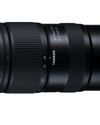
Tamron 28-75mm f/2.8 Di III RXD G2
The original version broke the mould for ‘trinity' standard zooms. The G2 enhances handling and performance further still
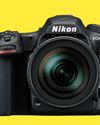
Nikon D500
Nikon's flagship DX-format DSLR is a modern classic. And while it hasn't been out of production for long, it left a hole in Nikon's camera line-up that's never been filled

Laurence Griffiths
With so much sporting action this summer, Laurence Griffiths of Getty Images reveals how to catch every goal at the Euros, details Getty Images' 24/7 Olympics coverage and why he always has a wide-angle ready. Keith Wilson managed to grab him before kick-off...
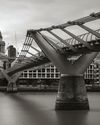
Ghost town
Adam Waring uses ND filters to subdue the hustle and bustle when shooting busy cities
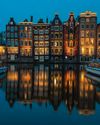
Creative cities
Experienced travel photographer Matt Higgs provides top tips for stunning shots of city sights
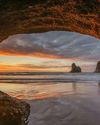
If at first you don't succeed...
Tom travels to the other side of the world to have another go at shooting an elusive image and displays the power of his perseverance
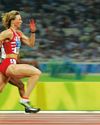
Shoot the summer of sports
Have the Olympics and Euros inspired you to photograph sport? Mike Harris shows you how to score a portfolio of top shots
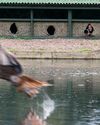
Osprey & prey
Birds of a feather Gary Jones and Leigh Pugh photograph ospreys from a purpose-built hide
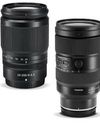
Superzoom lenses
These lenses will have you in for a long stretch, some more than others in the wide-angle to telephoto stakes
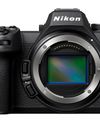
Nikon Z 6III
With a revolutionary 'partially stacked' full-frame sensor, the Z 6III fits flagship camera features in an compact enthusiast-level body